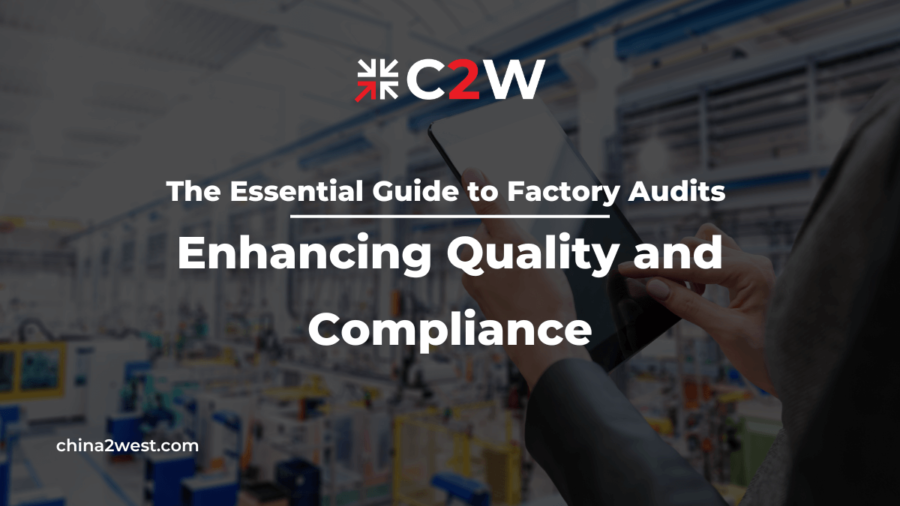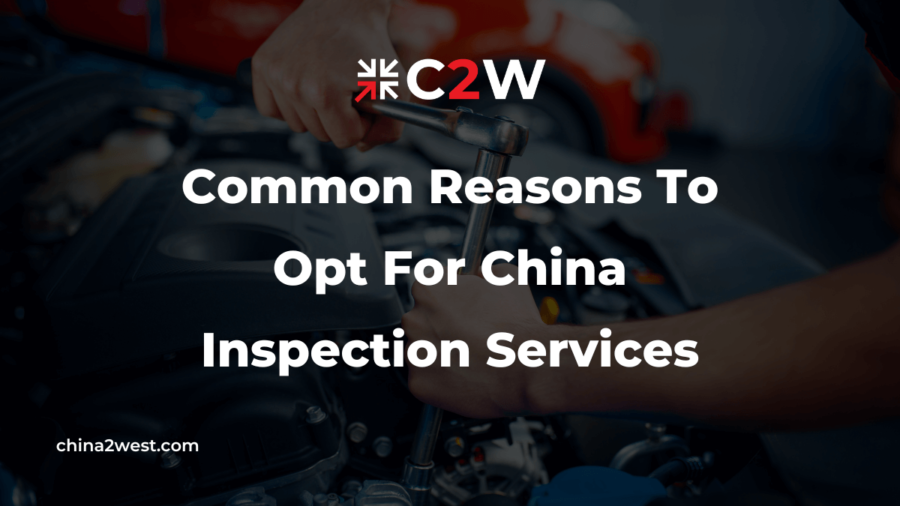In today’s competitive market, maintaining high standards in manufacturing and production is not just beneficial—it’s essential. Factory audits stand as one of the most critical tools in a company’s arsenal to ensure these standards are not only met but exceeded. By conducting thorough factory audits, businesses can significantly enhance their operational processes, quality control, compliance with regulations, and ultimately, their market reputation. In this guide, we will explore the importance of factory audits and provide insights on how to execute them successfully.
Know about Factory Audit
A factory audit is a systematic and independent examination conducted to assess a manufacturing facility’s operations against predetermined standards and criteria. It involves scrutinizing various aspects of the facility, including quality management systems, compliance with regulatory requirements, safety protocols, environmental impact, and social responsibility. The process is designed to identify strengths, weaknesses, and areas for improvement, ensuring that the facility operates efficiently, responsibly, and safely.
Types of Factory Audits You Need to Know
Navigating through the complex landscape of manufacturing operations necessitates a nuanced understanding of the different types of factory audits available to businesses. Each audit serves a distinct purpose, targeting specific operational facets to enhance quality, safety, and compliance.
Quality Audits
Quality audits are pivotal in evaluating the effectiveness of a manufacturing facility’s quality management system. They delve into processes, procedures, and policies to ensure that the products produced meet predefined standards and customer requirements.
Safety Audits
Safety audits focus on the physical aspects of the manufacturing environment, examining equipment, workspace layouts, and employee practices to identify potential hazards. Their goal is to mitigate risks and ensure a safe working environment for all employees.
Environmental Audits
Environmental audits assess the environmental impact of manufacturing operations, including waste management, pollution control, and resource utilization. These audits are crucial for businesses aiming to reduce their ecological footprint and comply with environmental regulations.
Social Compliance Audits
Social compliance audits address the ethical aspects of manufacturing, including labor practices, worker rights, and workplace conditions. They ensure that a business’s operations align with societal norms and international standards, safeguarding against exploitation and unethical practices.
Production Capability Audits
Production capability audits focus on evaluating a factory’s production capacity and capabilities. This audit assesses whether the factory has the necessary equipment, technology, and skilled workforce to meet production demands. It also examines the efficiency of production processes and the factory’s ability to handle potential increases in production volume, ensuring that the factory can meet both current and future production needs.
Good Manufacturing Practices (GMP) Audit
A GMP Audit evaluates whether the factory follows Good Manufacturing Practices, which are guidelines that ensure products are consistently produced and controlled according to quality standards. This audit is particularly critical for industries like pharmaceuticals, food, and cosmetics. It covers aspects such as hygiene, equipment maintenance, personnel training, and production processes. The goal is to minimize risks of contamination, mix-ups, and errors.
Key Areas of Focus During a Factory Audit
When conducting a factory audit, several critical areas warrant particular attention to ensure comprehensive evaluation and adherence to quality and safety standards. Firstly, quality control systems and processes form the backbone of manufacturing excellence. Auditors meticulously assess whether these systems are robust, consistently applied, and effective in preventing defects. Supply chain management also comes under scrutiny, examining the reliability and compliance of suppliers, as this can significantly impact product quality.
Operational procedures and employee practices are crucial for maintaining high standards. This includes evaluating the training, competency, and awareness of staff regarding quality and safety protocols. Infrastructure and equipment maintenance are also key factors; auditors check for the upkeep and safety of manufacturing equipment to prevent breakdowns and accidents.
Additionally, auditors review documentation and record-keeping practices. Accurate records are essential for traceability, compliance, and continuous improvement efforts. Waste management and sustainability practices are assessed to ensure the factory operates in an environmentally responsible manner.
Finally, health and safety measures are of paramount importance. Auditors ensure that factories adhere to safety regulations, employee health is protected, and risk management practices are in place to provide a safe working environment. By focusing on these areas, factory audits help identify opportunities for improvement, fostering a culture of quality and safety.
Leveraging Audit Findings to Drive Improvement
Once the factory audit is complete, it’s crucial to effectively leverage the findings to drive continuous improvement within your factory. The first step involves a thorough review and analysis of the audit report, identifying both compliance gaps and areas excelling in current practices. Prioritizing these findings based on their impact on safety, quality, and operational efficiency is essential for developing a focused corrective action plan. Engaging cross-functional teams in this process not only promotes a collaborative approach to problem-solving but also ensures buy-in from various stakeholders. Implementing changes based on audit findings may involve revising quality management systems, enhancing employee training programs, or upgrading equipment and processes to mitigate identified risks.
Choosing the Right Factory Auditing Partner
Selecting an appropriate auditing partner is a pivotal decision that can significantly impact the success of your factory audits. Look for a third-party inspection company with a proven track record in your industry, showcasing expertise and a deep understanding of the specific challenges and standards relevant to your operations. It’s essential to assess their credentials, including certifications and memberships in recognized industry associations, to ensure they meet professional and ethical standards.
A good auditing partner will offer flexibility in their approach, tailoring their services to fit your unique needs and constraints while maintaining objectivity and thoroughness. Evaluate their communication practices; effective auditors should provide clear, actionable feedback and foster open dialogue throughout the audit process. Consider their capacity to provide global support if your operations span multiple countries, ensuring they can navigate the complexities of international regulations and cultural nuances. Lastly, inquire about their post-audit support services, as ongoing guidance can be invaluable in implementing corrective actions and driving continuous improvement. Choosing the right partner is about more than just capabilities; it’s about finding a collaborator who is committed to helping your business excel.
Are you looking to enhance the quality and compliance of your manufacturing processes? Our team of expert auditors can help ensure that your factory meets all necessary standards and regulations, paving the way for enhanced productivity and success. Contact us today to learn more about our factory audit services and how we can assist you in achieving operational excellence.




